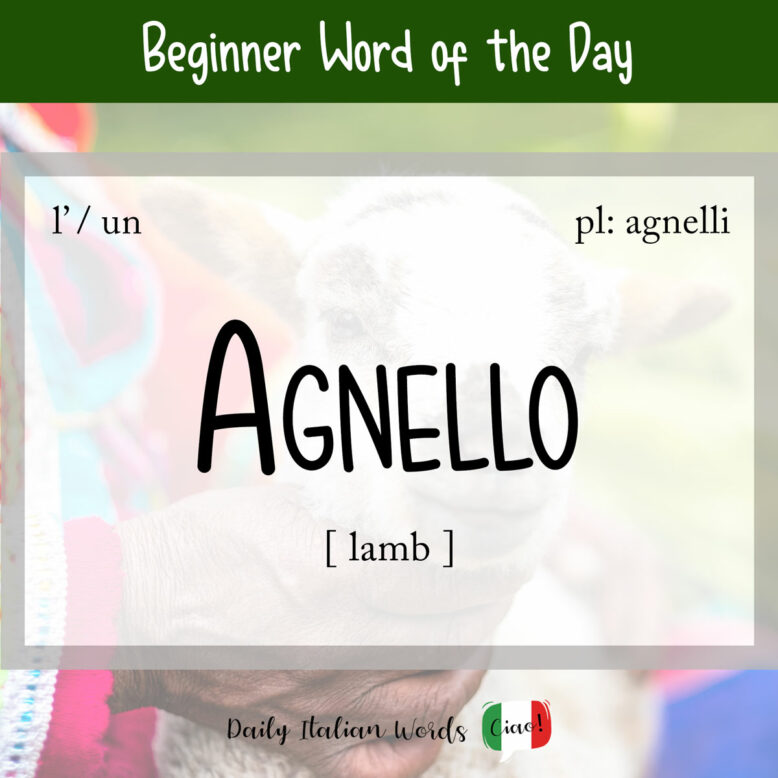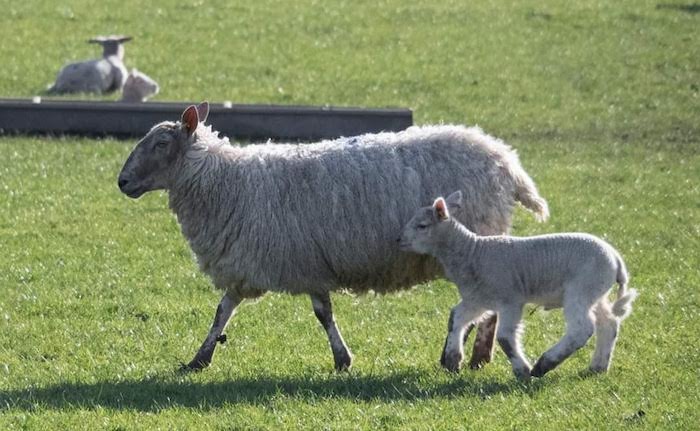Today’s word of the day is part of our Italian Easter Word series. Each day during the week leading up to Easter, we’ll post a word that is related to this special time of year. Enjoy! 🐰
A common Easter symbol along with rabbits (conigli), doves (colombe) and eggs (uova) is the lamb, which translates as agnello in Italian.
agnello
lamb

Agnello can refer to the live offspring of a sheep, the meat or the skin.
L’agnello correva nel prato.
The lamb was running through the field.
One of the reasons lambs are so closely associated with the Easter tradition is because in Christian symbolism, they represent the Son of God (Figlio di Dio) sacrificing himself for all of humanity. In fact, Jesus (Gesù) is often referred to as the Lamb of God (Agnello di Dio) in biblical literature.

The Christian tradition of consuming lamb at Easter derives from the Jewish Passover, which celebrates the liberation of Israelites from slavery in Egypt. According to the Torah, before God sent the angel of death to kill the firstborn sons of Egypt, he instructed Moses to order all Israelite families to sacrifice a lamb (sacrificare un agnello) and smear its blood on their houses so that the angel would know which houses to ‘pass over’. That same night, the Israelites were delivered from slavery and started their journey to the Promised Land.
In both Italian and English, agnello and lamb are also figurative terms for an innocent or meek person.
Ha accettato la decisione della moglie come un agnello.
He accepted his wife’s decision like a lamb.
The expression essere un agnello tra i lupi (to be a lamb amongst wolves) refers to a weak or meek person at the mercy of cruel enemies or fierce competitors.
A related term you’ll often hear is the diminutive agnellino which literally translates as little lamb. It can be used in the literal sense of the word, or as a term of endearment for a gentle or sweet person.
Tutti dicono che mio figlio è un agnellino.
Everyone says that my son is a darling.
Heather Broster is a graduate with honours in linguistics from the University of Western Ontario. She is an aspiring polyglot, proficient in English and Italian, as well as Japanese, Welsh, and French to varying degrees of fluency. Originally from Toronto, Heather has resided in various countries, notably Italy for a period of six years. Her primary focus lies in the fields of language acquisition, education, and bilingual instruction.


